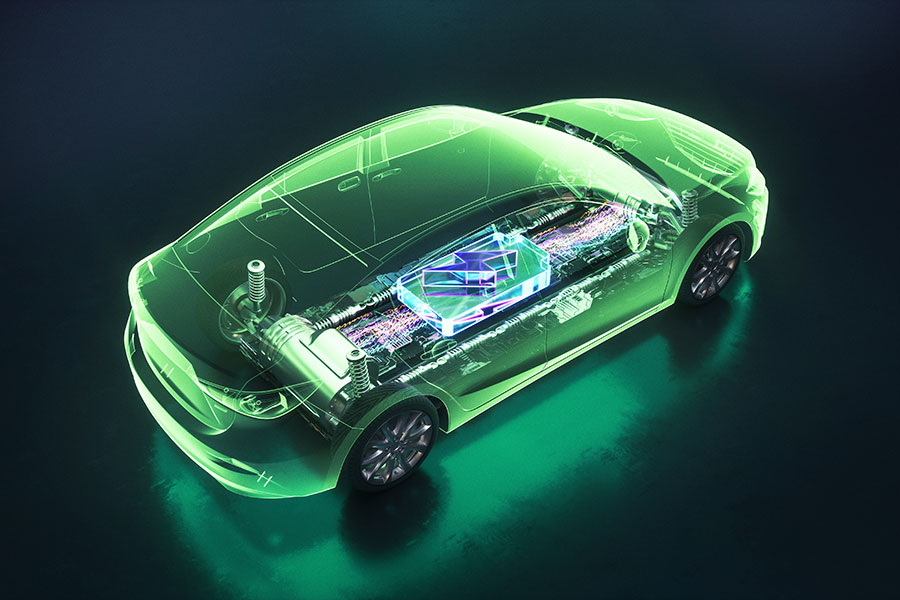
By Kate Yuan
(JW Insights) Aug 2 -- Chinese auto industry chain companies have begun full-scale expansion into overseas markets after a group of leading companies achieved impressive successes in their efforts of electrification and intelligence. At the same time, they face various challenges in different countries, said a report by JW Insights.

China's automotive exports exceeded 3 million units for the first time in 2022, reaching 3.111 million, surging 54.4% over the previous year. China has also surpassed Germany and become the world's second-largest automotive exporter after Japan, according to China Association of Automobile Manufacturers (CAAM).
In the first quarter of this year, China exported 1.07 million vehicles, surpassing Japan's 954,000 to become the single-quarter biggest exporter for the first time. Canalys predicts that China is expected to export 4.4 million vehicles in 2023, making it the world's largest automobile exporting country for the first time.
Chinese automakers are now actively building overseas bases. GAC Aion’s new factory in Thailand and SAIC’s factory in Europe are on the schedule. BYD has announced to establish a production base with the government of Bahia, Brazil. Neta’s Thailand plant is under construction, and JAC Motors has decided to set up a new facility in Mexico. In addition, Chery, Xpeng, and Changan also have such plans for overseas sites.
The supply chain companies are also expanding overseas with the power battery manufacturers at the forefront. Gotion High-tech, CATL, BYD, and Envision AESC have the most overseas projects, with 8, 7, 7, and 7 respectively.
Chinese automotive industry chain companies have received support and cooperation from many countries and regions for their leading technologies in NEVs and power batteries. Norway became the first stop for China's NEVs to enter the European market, and Thailand was the first choice in the Southeast Asian market.
China’s automakers and battery makers are currently planning more than 100 overseas projects, according to statistics from Qidian Lithium Battery and TrendForce.
Meanwhile, these automakers also face various challenges. Especially, there seem more various obstacles in the US. NIO CEO Li Bin questioned the fairness of the US market, saying recently that China welcomes American car companies such as Tesla to enter the Chinese market, but Chinese automakers find it difficult to enter the US market.
BYD's chairman also expressed cautious attitudes towards the US market. BYD vice president Li Ke recently said that "the US market is currently not within our consideration."
But the US seems receptive to Chinese power battery industry companies with their related technologies. Currently, Semcorp, Capchem, Gotion High-tech, and Envision AESC have already entered the US market.
However, world’s leading battery maker CATL has a different luck. Its plan to build a battery plant with Ford is under investigation. The US government has requested the plant not to rely on Chinese employees or core raw materials from China.
BYD's plan to build a plant in India was also reviewed and rejected by the Indian government due to "safety concerns." Earlier, SAIC Group's MG India was rumored to have been forcibly acquired at a low price by local parties.
Out of the over 100 planned overseas projects, none of them are located in India. Foxconn also intends to make cars in the Indian market, but its confidence may have been significantly affected after its Indian chip plan was scrapped.
In addition, the European Union is planning to launch anti-dumping and anti-subsidy investigations against electric vehicles from China. EU has concerns that China's electric vehicles would dominate the European market. Industry insiders say that the investigation could result in negative impact on Chinese automakers in the second half of next year.
RELATED
-
BYD plans to establish a sodium-ion battery plant in eastern China’s Xuzhou with an investment of RMB10 billion ($1.4 billion)
11-20 17:51 -
European Commission President von der Leyen will visit China in wake of the EU’s ongoing probe into China’s subsidies on EV industries
11-20 16:59 -
Chinese auto giant Changan Automobile plans to launch eight self-developed battery cells in the future
11-20 16:26
READ MOST

No Data Yet~







